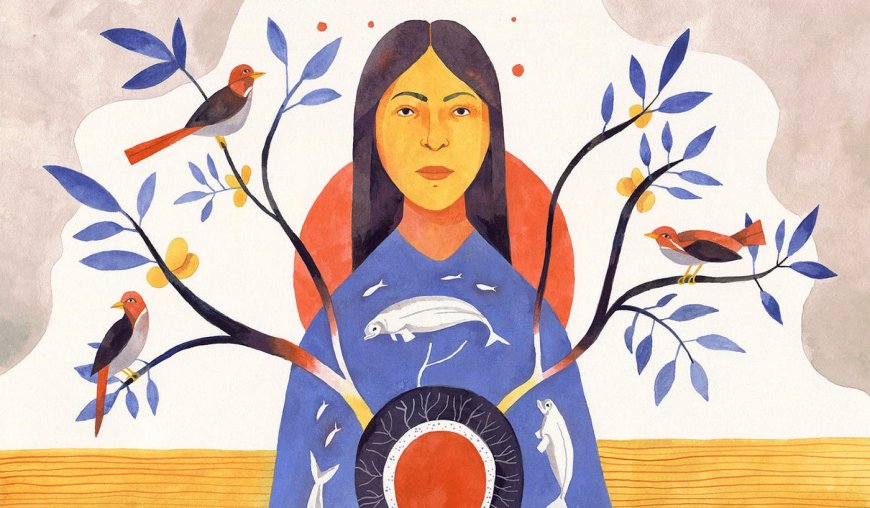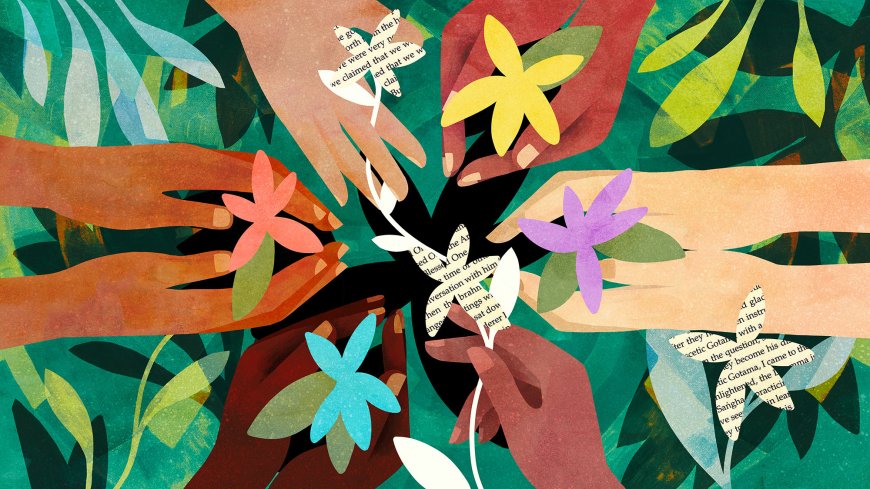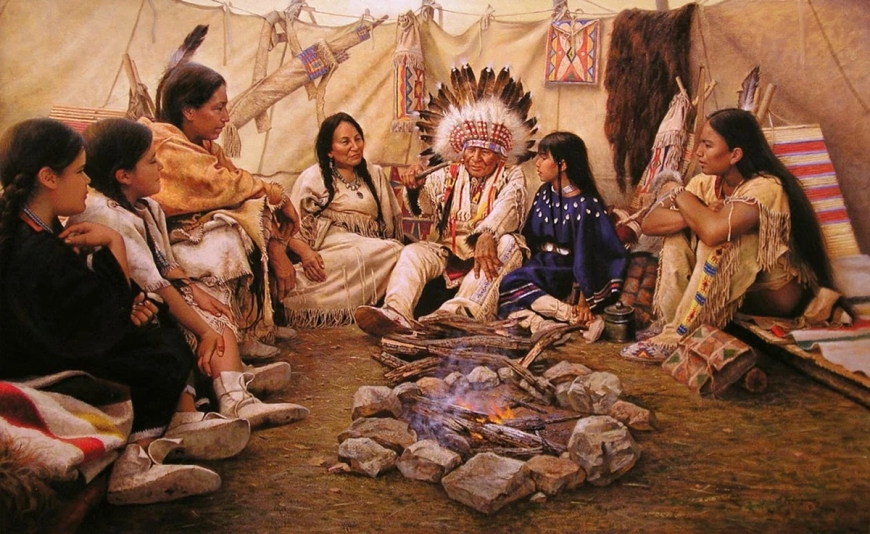Indigenous Traditions and Sexual Practices: Ancient Wisdom in Modern Context
Discover how indigenous cultures worldwide have traditionally approached sexuality, gender roles, and intimate relationships, and their relevance today.

Post: Indigenous Traditions and Sexual Practices: Ancient Wisdom in Modern Context
Indigenous cultures worldwide have developed sophisticated understandings of sexuality, gender, and intimate relationships over thousands of years, often integrating these concepts into broader worldviews that emphasize balance, community harmony, and spiritual connection. These traditional approaches to sexuality offer valuable insights for contemporary discussions about sexual health, gender identity, and relationship dynamics. As modern societies grapple with issues of sexual wellbeing and identity, examining indigenous wisdom provides alternative frameworks that challenge Western biomedical models while offering holistic approaches to human sexuality.
Holistic Worldviews and Sexuality
Indigenous traditions typically embed sexuality within comprehensive worldviews that connect physical intimacy to spiritual, emotional, and community dimensions. Unlike Western approaches that often compartmentalize sexuality as a separate aspect of human experience, indigenous cultures frequently view sexual expression as inseparable from overall wellbeing, spiritual development, and social harmony.
Many Native American traditions understand sexuality as sacred energy that connects individuals to the natural world and spiritual realms. The Lakota concept of "wohpe" encompasses harmony in all relationships, including intimate partnerships, emphasizing balance and mutual respect as foundations for healthy sexuality.
Australian Aboriginal cultures often integrate sexuality into Dreamtime narratives and ceremonial life, viewing reproductive and sexual energy as fundamental forces in creation and ongoing cosmic balance. These traditions emphasize the interconnectedness of human sexuality with land, ancestors, and spiritual beings.
African indigenous traditions frequently view sexuality as life force energy that must be properly channeled and honored through ritual, community guidance, and cultural practices. The Yoruba concept of "ase" (vital energy) includes sexual energy as part of the divine force that animates all life.
Gender Fluidity and Non-Binary Recognition
Long before contemporary Western discussions of gender identity, many indigenous cultures recognized and honored gender diversity through established social roles and cultural practices. These traditions offer historical precedents for understanding gender as fluid and multifaceted rather than rigidly binary.
Native American traditions include various concepts of gender-variant individuals, often termed "Two-Spirit" in contemporary pan-Indian contexts. These individuals were traditionally recognized as having both masculine and feminine spirits, often serving special roles as healers, spiritual leaders, or cultural mediators. Different tribes had specific terms and roles for gender-variant people, reflecting diverse approaches to gender identity.
Some Polynesian cultures recognize "fa'afafine" (Samoa), "fakaleiti" (Tonga), and "mahu" (Hawaii) as traditional gender categories that encompass individuals who may embody both masculine and feminine characteristics. These roles were traditionally accepted and often held special cultural significance.
Certain African cultures have historically recognized gender roles that don't conform to Western binary systems. The Dagara people of Burkina Faso traditionally recognize multiple gender categories, viewing gender diversity as spiritually significant and socially valuable.
Indian hijra communities represent ancient traditions of gender variance that predate colonial influence, with historical recognition in Hindu and Islamic texts. These communities have maintained cultural practices and social roles despite legal and social challenges in modern contexts.
Ceremonial and Ritual Aspects of Sexuality
Many indigenous traditions incorporate sexuality into ceremonial and ritual contexts, emphasizing the sacred dimensions of intimate relationships and reproductive processes. These practices often contrast sharply with Western tendencies to separate sexuality from spirituality.
Tantric traditions in Hindu and Buddhist cultures developed elaborate practices for channeling sexual energy toward spiritual enlightenment. These traditions view sexual intimacy as a powerful means of spiritual development when approached with proper understanding and intention.
Some Native American traditions include ceremonial practices that honor sexuality and fertility as sacred aspects of life. Pueblo fertility ceremonies, for example, celebrate the connection between human sexuality and agricultural abundance, emphasizing the spiritual dimensions of reproductive energy.
Aboriginal Australian cultures often include sexuality in initiation ceremonies that mark transitions to adulthood. These practices integrate sexual education with spiritual instruction, community bonding, and cultural transmission.
Traditional Sexual Education and Mentorship
Indigenous cultures typically approach sexual education through mentorship, storytelling, and gradual cultural immersion rather than formal classroom instruction. These approaches often provide more comprehensive preparation for sexual relationships and adult responsibilities.
Many Native American traditions include age-appropriate guidance about sexuality integrated into broader life skills education. Elders and community members provide mentorship about relationships, intimacy, and family responsibilities through storytelling, observation, and graduated participation in adult activities.
African cultures often maintain traditional practices of sexual education that include detailed instruction about pleasure, reproduction, and relationship dynamics. Some cultures have specialized roles for aunts, grandmothers, or community elders who provide intimate guidance to young people preparing for marriage and adult relationships.
Pacific Islander cultures frequently include sexual education within broader cultural education about family responsibilities, community relationships, and spiritual development. This holistic approach connects sexuality to cultural identity and social obligations.
Healing and Medicine Traditions
Indigenous medical systems often include sophisticated approaches to sexual health that integrate physical, emotional, and spiritual dimensions of healing. These traditions may offer valuable insights for contemporary sexual health practice.
Traditional Chinese Medicine views sexual health as fundamentally connected to overall vital energy (qi) and organ system balance. Practitioners assess sexual concerns within broader patterns of constitutional health and life energy, often prescribing herbal remedies, acupuncture, and lifestyle modifications that address underlying imbalances.
Ayurvedic medicine includes detailed understanding of sexual health (ojas) as related to overall vitality and spiritual development. Traditional Ayurvedic practitioners assess sexual concerns within individual constitutional types (doshas) and life stage considerations, providing personalized approaches to sexual wellness.
Native American healing traditions often include ceremonial and herbal approaches to sexual health concerns. Many tribes maintain traditional knowledge about plants that support reproductive health, fertility, and sexual vitality, often integrated into broader healing practices that address spiritual and emotional dimensions of sexual wellbeing.
Contemporary Relevance and Applications
Indigenous wisdom about sexuality offers valuable perspectives for addressing contemporary sexual health challenges, particularly in areas where Western biomedical approaches may be limited or culturally inappropriate.
Mental Health and Sexual Wellbeing
Indigenous holistic approaches to sexuality may provide frameworks for addressing sexual mental health concerns that integrate individual healing with community and spiritual support. These approaches often emphasize balance, connection, and cultural identity as foundations for sexual wellbeing.
Research suggests that indigenous people who maintain strong cultural connections and traditional practices often show better mental health outcomes, including sexual wellbeing. This suggests that cultural continuity and traditional wisdom may provide protective factors for sexual health.
Gender Identity Support
Indigenous traditions of gender diversity offer historical precedents and cultural frameworks for supporting contemporary gender-variant individuals. These traditions demonstrate that gender diversity has been recognized and valued in many cultures throughout history.
Two-Spirit and similar traditions provide cultural contexts for understanding gender identity that may be more affirming than Western binary frameworks. These traditions often emphasize the spiritual and cultural significance of gender diversity rather than viewing it as pathological or problematic.
Relationship and Family Structures
Indigenous approaches to relationships and family formation offer alternative models that may be relevant for contemporary discussions about family diversity, relationship structures, and community support systems.
Many indigenous cultures emphasize extended family and community involvement in relationship formation and support, contrasting with Western emphasis on individual autonomy. These approaches may offer insights for developing stronger support systems for intimate relationships and family wellbeing.
Challenges and Considerations
Incorporating indigenous wisdom into contemporary contexts requires careful attention to cultural appropriation, authenticity, and indigenous rights and sovereignty.
Cultural Appropriation Concerns
The extraction of indigenous practices from their cultural contexts risks cultural appropriation that benefits non-indigenous people while potentially harming indigenous communities. Respectful engagement requires understanding practices within their original cultural frameworks and ensuring that indigenous communities benefit from any use of their traditional knowledge.
Sacred and ceremonial aspects of indigenous sexuality should not be commercialized or adopted without proper cultural authorization and understanding. Many indigenous communities maintain protocols about sharing traditional knowledge that must be respected.
Colonization and Cultural Disruption
Historical colonization has disrupted many indigenous sexual and gender traditions, creating gaps in cultural transmission and knowledge preservation. Understanding indigenous sexuality requires recognizing how colonization has impacted these traditions and supporting indigenous efforts to reclaim and revitalize cultural practices.
Forced assimilation policies, residential schools, and religious conversion efforts have significantly impacted indigenous approaches to sexuality and gender, often imposing Western binary frameworks and sexual taboos that conflict with traditional practices.
Research and Documentation Ethics
Academic and medical research on indigenous sexuality must be conducted with appropriate community consent, benefit-sharing, and cultural protocols. Indigenous communities should control research about their cultural practices and ensure that research serves community needs and priorities.

Contemporary Indigenous Movements
Contemporary indigenous movements are working to reclaim and revitalize traditional approaches to sexuality and gender while addressing modern challenges and opportunities.
Cultural Revitalization Efforts
Many indigenous communities are actively working to revitalize traditional knowledge about sexuality, gender, and relationships. These efforts often involve elder consultation, cultural education programs, and community healing initiatives that address historical trauma while strengthening cultural identity.
Language revitalization efforts often include recovery of traditional terminology for sexuality and gender concepts, helping to preserve and transmit cultural knowledge about these important aspects of human experience.
Two-Spirit and Gender Movements
Native American Two-Spirit movements have created contemporary networks and organizations that honor traditional gender diversity while addressing modern challenges facing gender-variant indigenous people. These movements provide cultural contexts for understanding gender identity that may be more affirming than mainstream Western approaches.
Similar movements exist in other indigenous contexts, working to reclaim traditional gender roles and concepts while addressing contemporary discrimination and cultural disruption.
Integration with Modern Healthcare
Some indigenous communities are working to integrate traditional sexual health knowledge with contemporary healthcare delivery, creating culturally appropriate services that honor traditional wisdom while addressing modern health needs.
Traditional Medicine Integration
Healthcare systems in some regions are incorporating traditional indigenous approaches to sexual health, recognizing that these practices may be more culturally acceptable and effective for indigenous populations than Western biomedical approaches alone.
Training programs for healthcare providers increasingly include cultural competency education about indigenous approaches to sexuality and gender, helping to improve care quality and cultural appropriateness.
Community-Based Health Programs
Indigenous communities are developing community-based sexual health programs that integrate traditional knowledge with contemporary health education and services. These programs often emphasize cultural identity, community connection, and holistic wellbeing as foundations for sexual health.

Lessons for Contemporary Society
Indigenous traditions offer valuable lessons for contemporary society's approach to sexuality, gender, and relationships, particularly in areas where Western approaches may be limited or problematic.
Holistic Approaches to Sexual Health
Indigenous integration of sexuality with spiritual, emotional, and community dimensions offers models for more comprehensive approaches to sexual wellbeing that address the full range of human experience rather than focusing narrowly on biological or psychological factors.
Gender Diversity Recognition
Historical indigenous recognition of gender diversity provides precedents for contemporary efforts to support gender-variant individuals, demonstrating that gender diversity has been valued and honored in many cultures throughout history.
Community-Centered Approaches
Indigenous emphasis on community involvement in relationship formation and support offers alternatives to Western individualistic approaches, potentially providing stronger support systems for intimate relationships and family wellbeing.
Spiritual Dimensions of Sexuality
Indigenous recognition of sexuality as sacred energy offers frameworks for understanding intimate relationships as spiritually significant rather than merely biological or recreational, potentially contributing to more meaningful and fulfilling sexual experiences.











